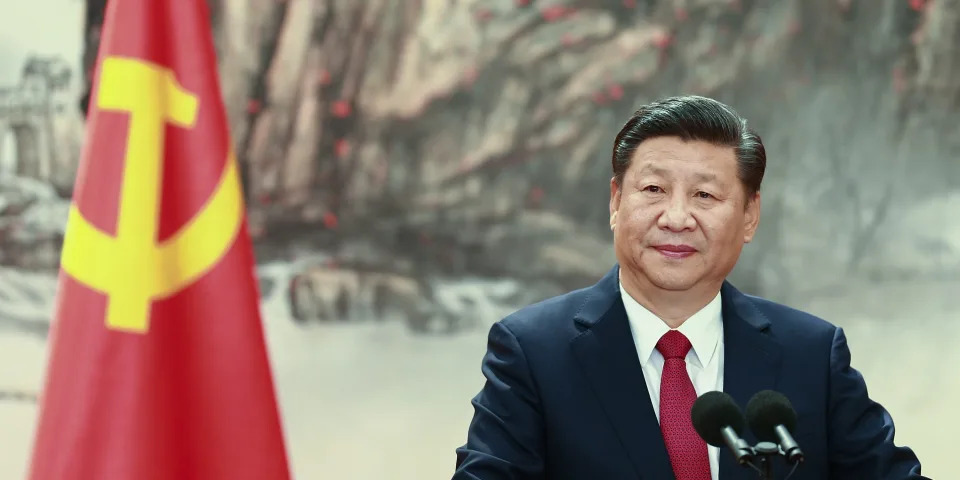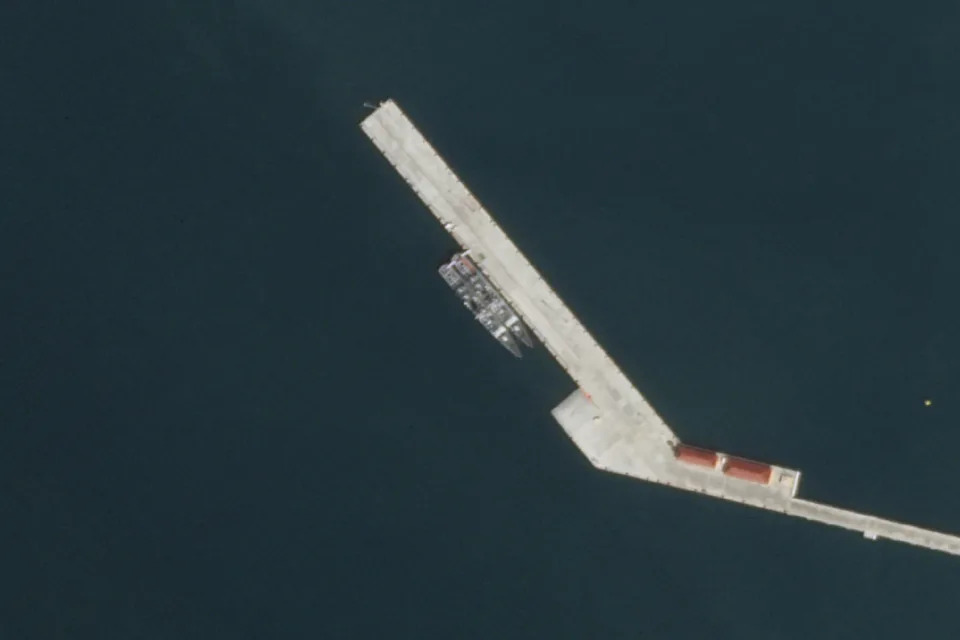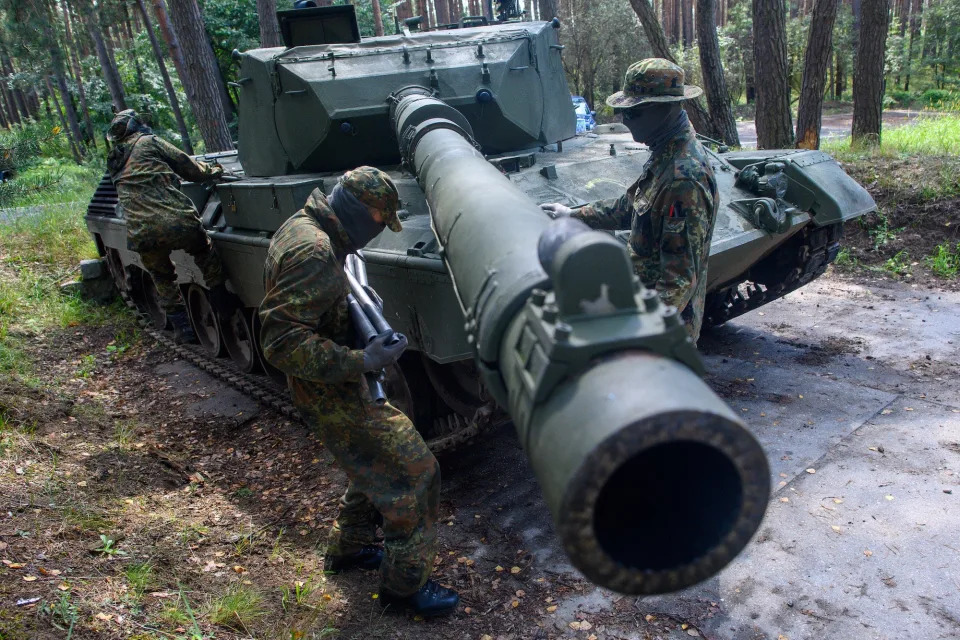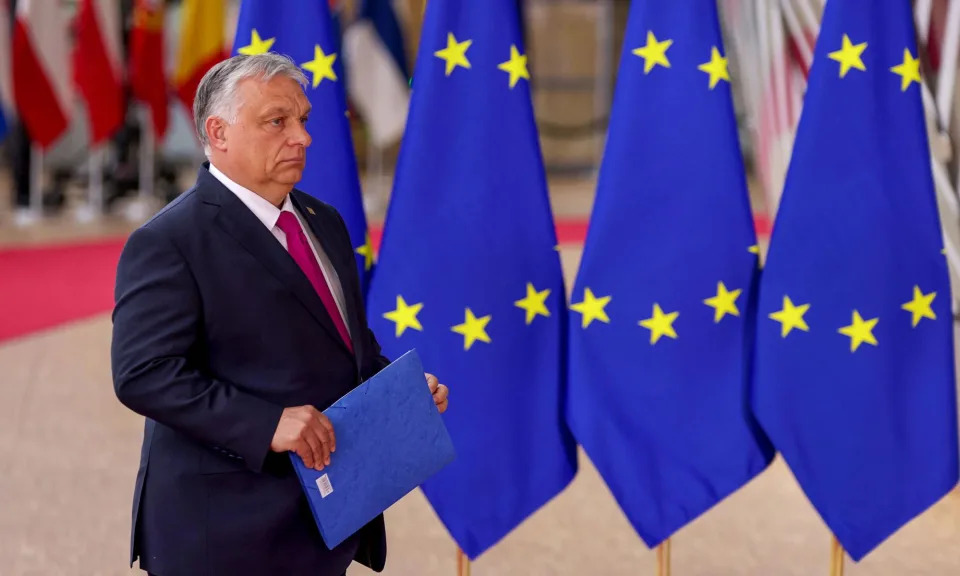MSNBC's Jen Psaki Busts A Myth About Nikki Haley
Lee Moran
Updated Tue, 5 December 2023
MSNBC’s Jen Psaki on Monday noted how 2024 presidential candidate Nikki Haley appears to be “having a moment” by slowly climbing in the polls.
There’s hope among some Republicans that the former U.S. ambassador to the United Nations is “a sane, moderate alternative” to GOP front-runner Donald Trump, said the former Joe Biden White House press secretary.
“But is she actually?” Psaki then asked.
Haley, unlike Trump, doesn’t go on bizarre rants or resort to racist tropes, suggested Psaki, but she’d actually govern “a lot closer to Trump” and his allies than some might believe.
Psaki cited Haley’s support of banning abortion after six weeks of pregnancy, her talk of sending U.S. forces into Mexico to fight drug cartels, and her commentary that Florida’s “Don’t Say Gay” law is not tough enough.
“It is definitely a good thing, unquestionably, that she isn’t launching into unhinged rants and echoing the language of dictators,” Psaki said. “But it’s also important to dig into what she says she would actually do as president. You might find it isn’t so moderate after all.”
Watch the video here:
Lee Moran
Updated Tue, 5 December 2023
MSNBC’s Jen Psaki on Monday noted how 2024 presidential candidate Nikki Haley appears to be “having a moment” by slowly climbing in the polls.
There’s hope among some Republicans that the former U.S. ambassador to the United Nations is “a sane, moderate alternative” to GOP front-runner Donald Trump, said the former Joe Biden White House press secretary.
“But is she actually?” Psaki then asked.
Haley, unlike Trump, doesn’t go on bizarre rants or resort to racist tropes, suggested Psaki, but she’d actually govern “a lot closer to Trump” and his allies than some might believe.
Psaki cited Haley’s support of banning abortion after six weeks of pregnancy, her talk of sending U.S. forces into Mexico to fight drug cartels, and her commentary that Florida’s “Don’t Say Gay” law is not tough enough.
“It is definitely a good thing, unquestionably, that she isn’t launching into unhinged rants and echoing the language of dictators,” Psaki said. “But it’s also important to dig into what she says she would actually do as president. You might find it isn’t so moderate after all.”
Watch the video here:
Michael Wolff
Wed, 6 December 2023

Nikki Haley (Getty Images)
Nikki Haley scored two big-money prestige endorsements last week that strikingly boost her standing in the Republican primaries. The Koch Brothers’ conservative money machine, Americans for Prosperity Action, lined up behind the former South Carolina governor, a move that could provide her with maximum financial support, especially if she overtakes, as she seems poised to do, Ron DeSantis as the designated Trump alternative. And then she captured the public favour of Jamie Dimon, the chief executive of JPMorgan Chase, a mega donor and major business voice.
The problem is that the Koch money and the Dimon influence have, since 2015 when Donald Trump first came down the Trump Tower stairs to announce his candidacy, been wholly opposite indicators of political success. Haley’s own personal fortunes and media profile might be dramatically improving, but the endorsements are another red flag that she has no hope whatsoever of competing with Donald Trump or, for that matter, ever becoming a presidential nominee in today’s Republican party.
The Koch group and Dimon — and Haley — are part of a new fantasy world in American politics. This fantasy is widely supported by the media eager for a horse race and even by many Democrats with their anybody-but-Trump hope and ancillary fear (eg that a “normal” Republican would easily sweep Joe Biden) of a return to a recognizable internationalist and business-centred Republican party. It’s a fantasy holding that there is actual competition in the Republican party between the Trump wing and more mainstream types, or that, at any moment, the Republican mass fever will break and normalcy will return. A variation on this is that Trump himself is the virus and without him — and that time will come — a well-positioned normal Republican like Haley could thrive in a recovered and healthy party.
Haley is George Bush: Gung-ho on American power abroad, moderate on immigration at home
This is Haley’s strategy against Ron DeSantis. His move has been to be a politics-as-usual figure but one offering Trump-type policies — he’s anti-woke! When Trump falls, from age, diet, indictments or the nation’s general Trump exhaustion, DeSantis would be in place. (A problem here is that not only does Trump show no sign of falling, but he offers so much more than mere policies — a performance, a lifestyle, a joie de guerre.) Haley, on her part, offers politics-as-usual and as well policies-as-usual. She’s George Bush. Gung-ho on American power abroad; moderate on immigration at home; tolerant of China. In her world of fantasy and denial, almost nothing has changed in the interests of the Republican party: it’s an establishment fortress.
This might be the most viable place to be. DeSantis’s bid depended on Trump collapsing and him picking up the Make America Great Again mantle. In addition to being stronger than he’s ever been, Trump has mocked and belittled DeSantis to such an extent that there is no MAGA support available to him — even if Trump were to fall. Having pressed his anti-woke-corporate agenda and having combined that with a Trumpist “dump Ukraine” view, he’s lost the establishment too. Haley, on the other hand, may not have identified a winning (or anywhere near close to winning) Republican primary strategy, but she’s found the money. This sort of money might itself be a disqualifying event for MAGA voters — the Kochs and Dimon are the haughtiest of patricians in a populist world — but it gains her a media and chattering class constituency, hence the recent surge in stories that, if somehow Trump could lose, she could actually win.
Within the Trump White House, where she had little influence, she was a figure of curiosity and mockery. “She’s as ambitious as Lucifer,” Steve Bannon once remarked to me, observing with amusement that, in New York as the Trump Ambassador to the UN — a position she had no particular qualifications for — Haley spent a great deal of her efforts getting to know the New York money and power circles.
She was the subject in the White House of constant tittering — that Trump White House’s special brand of “locker room talk”. This was partly what every woman in the Trump White House endured, but it also involved a particular fascination, not least of all by Trump himself, with a sexual scandal that she was embroiled in (and weathered) when she was governor (a blogger claimed the married Haley had had an affair with him; she denied it; the greater Republican party came to her defence).
While she owes her national ascendency to the Trump White House, she seemed to have survived it purely through gritted teeth. When she resigned her UN job, she did it in the last weeks of the 2020 campaign — quite a public statement that she did not think Trump would win and that she was preparing her own non-Trump future.
Her campaign is in almost every facet a direct rebuke to the Trump party in all its misogyny, anti-immigrant mania and proto-isolationism — and, too, in its vast popularity among Republican primary voters. But the Trump team seems sanguine, even happy, about having her in the race. Trump has even suggested that she could be his Vice President. “Sometimes he just throws crazy stuff out there to get people talking. He’d never pick Nikki in a trillion years. But he did it just to make her think about how hard she wants to hit him, how much she wants to go after him,” said an aide, enjoying this idle by-play.

Ron DeSantis (Getty Images)
Haley, in the fantasy world where she is an alternative to Trump, indeed where there is an alternative to what the Republican party has become, was perfectly useful. Ron DeSantis was useful too. Each of them the focus of the other on the debate stage — a stage without Trump.
That’s what the entire exercise of the 2024 Republican primary process has come to be about. Everybody knows who, in the end, will be number one. So the primary process has now become about picking number two. The fight here is bitter and perhaps fatal (certainly DeSantis might not politically survive). In this fight some might even believe there is a battle for the soul of a party, however notional that party now is. But number two will never challenge number one and number two will never become president.
Michael Wolff is the author of Fire and Fury and The Fall: The End of the Murdoch Empire













